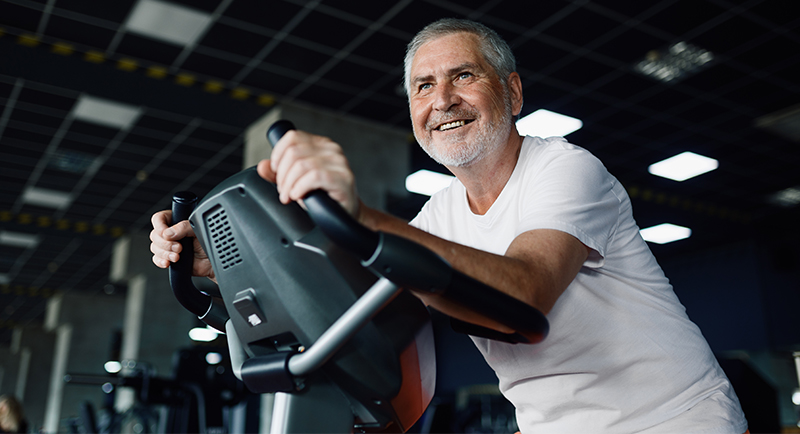Solutions for keeping men healthy after andropause
There’s a little-known phenomenon called andropause, a normal process of aging that some men (around 2.1 percent) will experience. Think of andropause as the equivalent of women who go through menopause.
Andropause sometimes is called ‘male menopause,’ yet it differs from what women experience.
For women, menopause means the end of their ability to conceive a baby; however, men can remain fertile throughout their life even though sperm quality and quantity does reduce with age. Menopause in women also means that estrogen production ceases, whereas andropause only slows testosterone production. Most women who go through menopause will also experience symptoms, but a much smaller percentage of men with andropause will notice any symptoms.
Andropause usually happens between the ages of 45 and 65 for men. Around this age span is when testosterone levels begin to decline, resulting in several symptoms, including erectile dysfunction, reduced sex drive, less frequent morning erections, reduced muscle mass, hot flashes, mood swings, depression, and memory disorders. However, even if a man has some of these symptoms, andropause is not the only reason they may be happening, as they could also be signs of other health problems.
Since andropause begins at a time in a man’s life when they have an increased risk for developing chronic health problems, they should pay attention to the development of any of these particular medical conditions:
- Heart disease
- Type 2 diabetes
- Osteoporosis
- High cholesterol levels
- High blood pressure
- Osteoarthritis
- Insomnia
- Erectile dysfunction
- Prostate problems
Fitting in health and wellness after andropause
Men’s healthy aging begins by embracing healthy lifestyle habits. Of course, the earlier they are adopted, the better, but even if a man starts later in life, it all adds up to help reduce symptoms of andropause.
Here are ideas for men to consider:
- Eat healthy foods rich in calcium and vitamin D for strong bones, sufficient protein to maintain muscle mass, and plenty of fruits and vegetables for good blood flow.
- Exercise most days of the week. Whatever activity a man chooses to be physically active in, he should enjoy to benefit from it most.
- Practice stress-reducing habits to lessen its effects of it. Excessive or chronic stress can be harmful to both physical and mental health.
- Never start using tobacco products, or men who do should quit. Instead, take advantage of tools to help kick the habit.
- If a man consumes alcohol, he should do so only in moderation.
- Adequate sleep is a must for allowing the body to rest and recuperate. However, men lacking sleep can find tools to encourage better sleep habits.
- Men should see their primary care physician for a yearly check-up as a prevention measure. The earlier any health issues are found, the greater the likelihood of better management of it or a complete recovery. This ensures a longer and better quality of life for men in years to come.
Dr. David Samadi is the Director of Men’s Health and Urologic Oncology at St. Francis Hospital in Long Island. He’s a renowned and highly successful board certified Urologic Oncologist Expert and Robotic Surgeon in New York City, regarded as one of the leading prostate surgeons in the U.S., with a vast expertise in prostate cancer treatment and Robotic-Assisted Laparoscopic Prostatectomy. Dr. Samadi is a medical contributor to NewsMax TV and is also the author of The Ultimate MANual, Dr. Samadi’s Guide to Men’s Health and Wellness, available online both on Amazon and Barnes & Noble. Visit Dr. Samadi’s websites at robotic oncology and prostate cancer 911.

